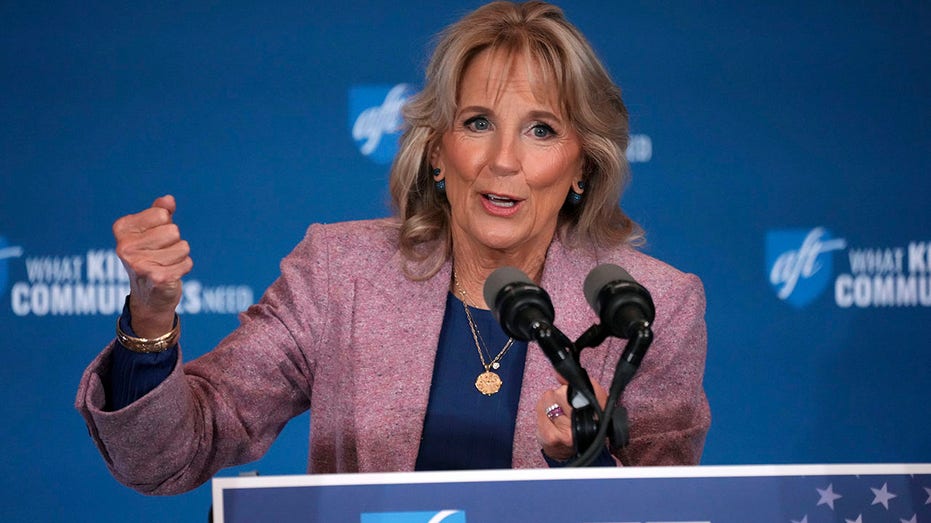US Top News and Analysis
Stock futures are flat Wednesday night as investors looked beyond the hawkishness of the Federal Reserve’s meeting minutes released in the afternoon toward labor data coming later this week.
Futures tied to the Dow Jones Industrial Average lost 36 points, trading down around 0.1%. S&P 500 and Nasdaq 100 futures both also traded down 0.1%.
The moves follow a choppy trading session. Markets had been down early in the day on the back of a mixed bag of economic data, but stock rose into the closing bell. The Dow ended the day up 133 points, or 0.4%, while the S&P 500 and Nasdaq added 0.8% and 0.7%, respectively.
November’s Job Openings and Labor Turnover, or JOLTS, report showed the job market remained strong, bolstering concerns that the Fed could continue raising interest rates as long as there remained a hot market for workers. But the ISM manufacturing index showed the sector was contracting after 30 months of expansion, which investors saw as a positive indicator that previous rate hikes had the intended impact of cooling the economy.
Stocks were mainly trading up in the afternoon. But gave up some of their gains following the release of minutes from the Fed’s December meeting, which showed the central bank remained committed to higher interest rates for “some time.”
Investors have “wounds that are still fresh” following 2022, which brought the worst year for the stock market since 2008, said Keith Buchanan, a portfolio manager at GLOBALT Investments. He said investors are attempting to balance what each new piece of economic data or Fed commentary can indicate with broader concerns about the future.
“Every day that goes by and we get a data point that’s moving in the right direction, it’s positive,” Buchanan said. “But it’s also quickly followed up with apprehension on how sensitive and delicate this moment is.”
Investors will watch Thursday for more data on jobs, the trade deficit and business activity. Fed speakers Raphael Bostic and James Bullard are also both slated to speak.
On Friday, investors will review data on nonfarm payrolls, the unemployment rate and hourly wages. Since the report could have a big impact on the Fed’s next moves, it has the potential to impact the market. Investors don’t want to see big gains in wage growth.
T-Mobile shares rise following preliminary customer data
Shares of telecommunications giant T-Mobile added 1.5% in after-hours trading on the back of preliminary fourth-quarter customer data.
The company added 314,000 postpaid net accounts in the fourth quarter, which is 1,000 below the same quarter a year ago and 80,000 below the third quarter of 2022.
But it added 1.82 million total postpaid customers in the quarter, beating the 1.63 million seen in the third quarter and 1.75 in the same quarter a year ago. The total number of postpaid phones was also up quarter over quarter, adding 927,000 compared with the third quarter’s 854,000 and prior year’s 844,000.
Postpaid phone churn was also up slightly quarter over quarter by 0.04%, coming in at 0.92%. The prior year’s fourth quarter posted a 1.1% churn rate.
Industry analysts use postpaid customer data to draw conclusions about a wireless company’s broader health because they pay monthly bills and tend to be more reliable customers.
Meanwhile, T-Mobile added 524,000 high-speed internet customers, which is 54,000 fewer than the prior quarter. In the fourth quarter a year ago, T-Mobile brought in just 224,000.
Loading chart…
— Alex Harring
Expect ‘stubbornly high’ inflation and a mild recession in 2023, Cresset predicts
Despite many economic indicators showing at least some signs of the economy cooling, Cresset Capital Management said to prepare for inflation to stick around this year.
“We expect inflation pressure to remain stubbornly high through 2023,” the firm said in its 2023 outlook.
The firm said U.S. inflation should be able to reach 3.5% relatively easily, but hitting the 2% threshold will be challenging. It also said to expect global central banks to pivot and accept inflation at a rate that’s higher than preferred, adding that inflation between 3% and 4% could be tolerated for a period.
Cresset also said it expects a mild recession in the middle of 2023 as interest rate hikes have their full effects on the economy. It said a “soft landing” scenario, which is when a recession would be avoided, is unlikely.
— Alex Harring
Luminar pops after management says company met 2022 milestones
Luminar, a maker of equipment that harnesses solar energy for electric vehicles, jumped more than 4% after the company announced new technology and said it met 2022 performance goals at a trade show.
At the Consumer Electronics Show taking place in Las Vegas this week, the company said it signed new series production deals for multiple vehicle models with automakers in December. Those deals exceeded targets, said company leadership, who added that all four 2022 milestones Luminar set for itself were met by the end of the year.
Luminar also hosted the North American debut of consumers vehicles from Volvo Cars and SAIC’s Rising Auto that used the company’s light detection and ranging products.
The company also said it acquired Civil Maps, a company focused on mapping for electric vehicles. And management said the company was launching a new three-dimensional mapping software in high definition.
Luminar stock hit a 52-week low in Wednesday trading.
Loading chart…
— Alex Harring
Stock futures open down
Stock futures opened in the red Wednesday evening.
Dow futures shed 32 points at open, or 0.1%. S&P 500 and Nasdaq 100 futures each lost 0.1% as well.
— Alex Harring



